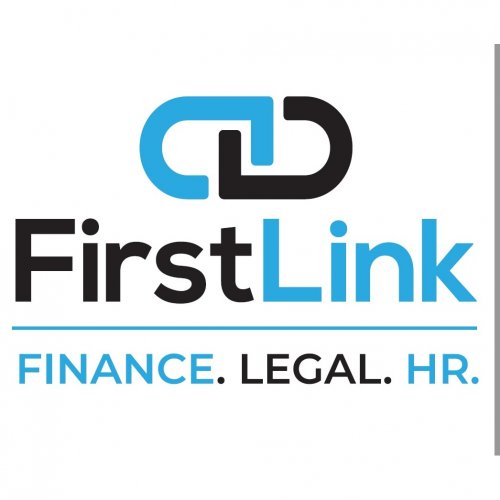Best Financial Services Regulation Lawyers in Port of Spain
Share your needs with us, get contacted by law firms.
Free. Takes 2 min.
List of the best lawyers in Port of Spain, Trinidad and Tobago
About Financial Services Regulation Law in Port of Spain, Trinidad and Tobago
Financial Services Regulation in Port of Spain, Trinidad and Tobago, is primarily overseen by several key governmental and regulatory bodies, including the Central Bank of Trinidad and Tobago and the Trinidad and Tobago Securities and Exchange Commission (TTSEC). The regulations encompass a broad spectrum of financial activities, ensuring the stability and integrity of the financial system. This regulatory framework covers banking, insurance, securities, and other financial institutions, aiming to protect consumers, promote fair trading, and reduce systemic risk. With a robust legal structure, these regulations are crucial for maintaining transparency and trust in the financial market.
Why You May Need a Lawyer
There are several common scenarios where individuals or businesses might seek legal assistance in the realm of Financial Services Regulation:
- Compliance: Ensuring that a financial institution or business complies with local, national, and international financial laws can be complex and requires expert legal guidance.
- Disputes: Legal assistance may be needed to resolve disputes between financial services providers and clients or between business partners within the financial services industry.
- Licensing and Registration: Navigating the process of obtaining necessary licenses or registrations to operate legally within the financial marketplace.
- Investigations and Enforcement: Representation during investigations or enforcement actions initiated by financial regulators.
- Mergers and Acquisitions: Legal intricacies involved in mergers or acquisitions of financial services companies often require specialized legal counsel.
- Contracts and Documentation: Drafting and reviewing contracts, including terms and conditions, is crucial to minimize legal and financial risks.
Local Laws Overview
The legal landscape for financial services in Port of Spain is shaped by several important pieces of legislation:
- Financial Institutions Act: Governs the operations of banks and non-banking financial institutions, ensuring soundness and stability.
- Securities Industry Act: Regulates activities related to securities trading, protecting investors and ensuring fair markets.
- Insurance Act: Provides the framework for the operation of insurance companies and intermediaries, maintaining industry standards.
- Anti-Money Laundering and Counter Financing of Terrorism Regulations: Implements stringent measures to prevent money laundering and terrorism financing activities within the financial sector.
- Central Bank Act: Defines the role of the Central Bank in regulating monetary policy and providing stability to the financial system.
Frequently Asked Questions
What are the main regulatory bodies overseeing financial services in Port of Spain?
The Central Bank of Trinidad and Tobago and the Trinidad and Tobago Securities and Exchange Commission (TTSEC) are the principal regulatory bodies.
How can I ensure my business complies with financial regulations?
Engage with a legal expert specializing in financial services regulation to guide compliance with local and international laws.
What are the consequences of non-compliance with financial regulations?
Non-compliance can result in penalties, fines, legal action, and reputational damage to your business.
Can I handle a financial regulation dispute without a lawyer?
While it's possible, it is not advisable due to the complex nature of financial laws and the stakes involved.
What should I do if a regulatory body starts an investigation on my company?
Contact a legal expert immediately to guide you through the investigation process and ensure your interests are protected.
Are there special regulations for foreign financial institutions operating in Port of Spain?
Yes, foreign institutions must comply with both local laws and additional requirements specific to foreign entities.
How do I know if my financial product violates local regulations?
Consulting with a lawyer who specializes in financial regulation law can help you assess compliance risks associated with your financial products.
Is there a public registry for licensed financial service providers?
Yes, regulatory bodies maintain public registries where you can verify the status of licensed financial service providers.
What role does the Central Bank play in financial regulation?
The Central Bank regulates monetary policy, supervises financial institutions, and works to ensure financial stability.
How do I apply for a financial service license in Trinidad and Tobago?
It typically involves submitting an application to the relevant regulatory body, meeting specific criteria, and paying associated fees. Legal assistance can streamline this process.
Additional Resources
Several resources are available to help you understand financial services regulations:
- Central Bank of Trinidad and Tobago: [Useful for information on monetary policies and regulations]
- Trinidad and Tobago Securities and Exchange Commission (TTSEC): [Guidance on securities regulations and compliance]
- Ministry of Finance: [Policy updates and changes in financial legislation]
- Local Legal Firms: [Consultations and representations for financial regulation matters]
Next Steps
If you require legal assistance in financial services regulation, consider the following steps:
- Identify and list your specific needs and concerns regarding financial services or compliance issues.
- Research and reach out to legal professionals or firms specializing in financial services regulation.
- Request an initial consultation to discuss your situation and explore potential legal strategies.
- Ensure to gather and provide necessary documentation related to your case during consultations.
- Work collaboratively with your legal team to develop and implement a comprehensive plan to address your concerns.
Lawzana helps you find the best lawyers and law firms in Port of Spain through a curated and pre-screened list of qualified legal professionals. Our platform offers rankings and detailed profiles of attorneys and law firms, allowing you to compare based on practice areas, including Financial Services Regulation, experience, and client feedback.
Each profile includes a description of the firm's areas of practice, client reviews, team members and partners, year of establishment, spoken languages, office locations, contact information, social media presence, and any published articles or resources. Most firms on our platform speak English and are experienced in both local and international legal matters.
Get a quote from top-rated law firms in Port of Spain, Trinidad and Tobago — quickly, securely, and without unnecessary hassle.
Disclaimer:
The information provided on this page is for general informational purposes only and does not constitute legal advice. While we strive to ensure the accuracy and relevance of the content, legal information may change over time, and interpretations of the law can vary. You should always consult with a qualified legal professional for advice specific to your situation.
We disclaim all liability for actions taken or not taken based on the content of this page. If you believe any information is incorrect or outdated, please contact us, and we will review and update it where appropriate.













